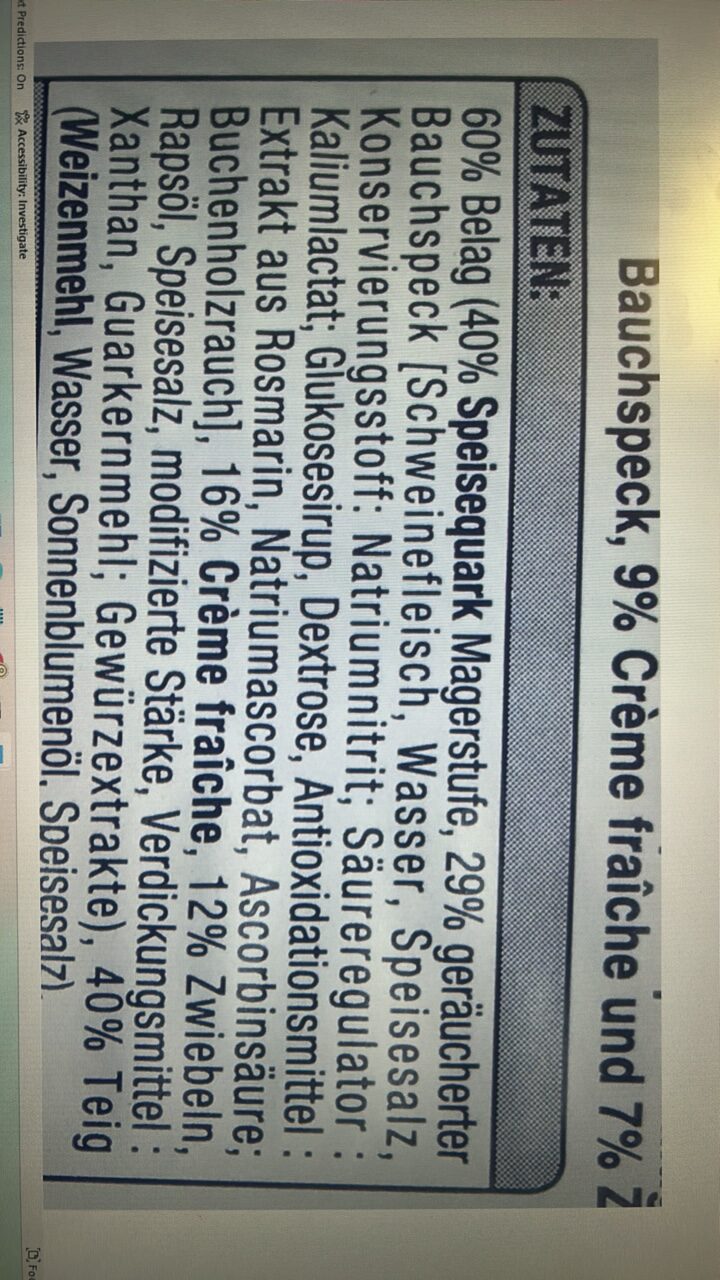
Barcode: 8964000883129
unknown
HARAM
📝 Reason: The product contains pork, which is explicitly Haram as per Quran 5:3. Despite other ingredients being Halal, the presence of pork makes the entire product Haram.
📄 Certificates: None
Ingredients:
Details
Understanding the Halal Status of the Product Unknown
The product in question is labeled as ‘unknown’ and unfortunately carries a halal status of HARAM. The primary reason for this classification is the presence of pork, which is explicitly prohibited in Islam according to Quran 5:3. This blog will dive deeper into all ingredients and their status regarding Halal dietary laws.
The Ingredients Breakdown
The ingredients list includes a variety of items, but the highlight—and cause for concern—is the inclusion of pork, specifically:
- 29% smoked belly bacon [pork, preservative: sodium nitrite, acid regulator: potassium lactate, water, salt, glucose syrup, dextrose, antioxidant: extract from rosemary, sodium ascorbate, ascorbic acid, beechwood smoke]
- 16% crème fraîche
- 12% onions
- rapeseed oil
- modified starch
- thickener: xanthan
- guar gum
- spice extracts
- 40% dough (wheat flour, sunflower oil)
Why is Pork Considered Haram?
Islamic dietary laws are strict when it comes to consuming pork, which is deemed Haram due to its nature and the teachings found in the Quran. Even if other ingredients may be Halal, the presence of pork contaminates the product entirely making it Haram.
Ingredient Analysis: E-Numbers and Others
Let’s dissect the remaining ingredients one by one to understand their Halal status:
- Sodium Nitrite (E250): Generally considered Halal unless derived from Haram sources, but no specific information is provided on its source in this case.
- Potassium Lactate (E326): This is a salt of lactic acid and is typically Halal. It’s crucial to note it must originate from Halal sources.
- Water: Universally recognized as Halal.
- Salt: Universally Halal.
- Glucose Syrup & Dextrose: Usually Halal unless derived from Haram sources which are not specified here.
- Extract from Rosemary: Being plant-based, this is Halal.
- Sodium Ascorbate (E301) & Ascorbic Acid (E300): Both compounds are derived from Vitamin C and considered Halal.
- Beechwood Smoke: Typically Halal unless contaminated with Haram substances.
- Crème Fraîche: This dairy product is Halal unless it has been contaminated.
- Onions, Rapeseed Oil, Wheat Flour, Sunflower Oil: All recognized as Halal.
- Modified Starch: Generally Halal unless derived from Haram sources.
- Xanthan Gum (E415): Produced from fermentation, this is Halal.
- Guar Gum (E412): Derived from the guar bean, and also Halal.
Conclusion: Should You Avoid the Product Unknown?
Given the primary ingredient of pork, this product should be avoided by those adhering to a Halal diet. Even if many other components are Halal, the initial contamination by a Haram substance leads to the conclusion that the product is not suitable for consumption. Always check for certified Halal labels and certifications to ensure your dietary choices align with your beliefs.

